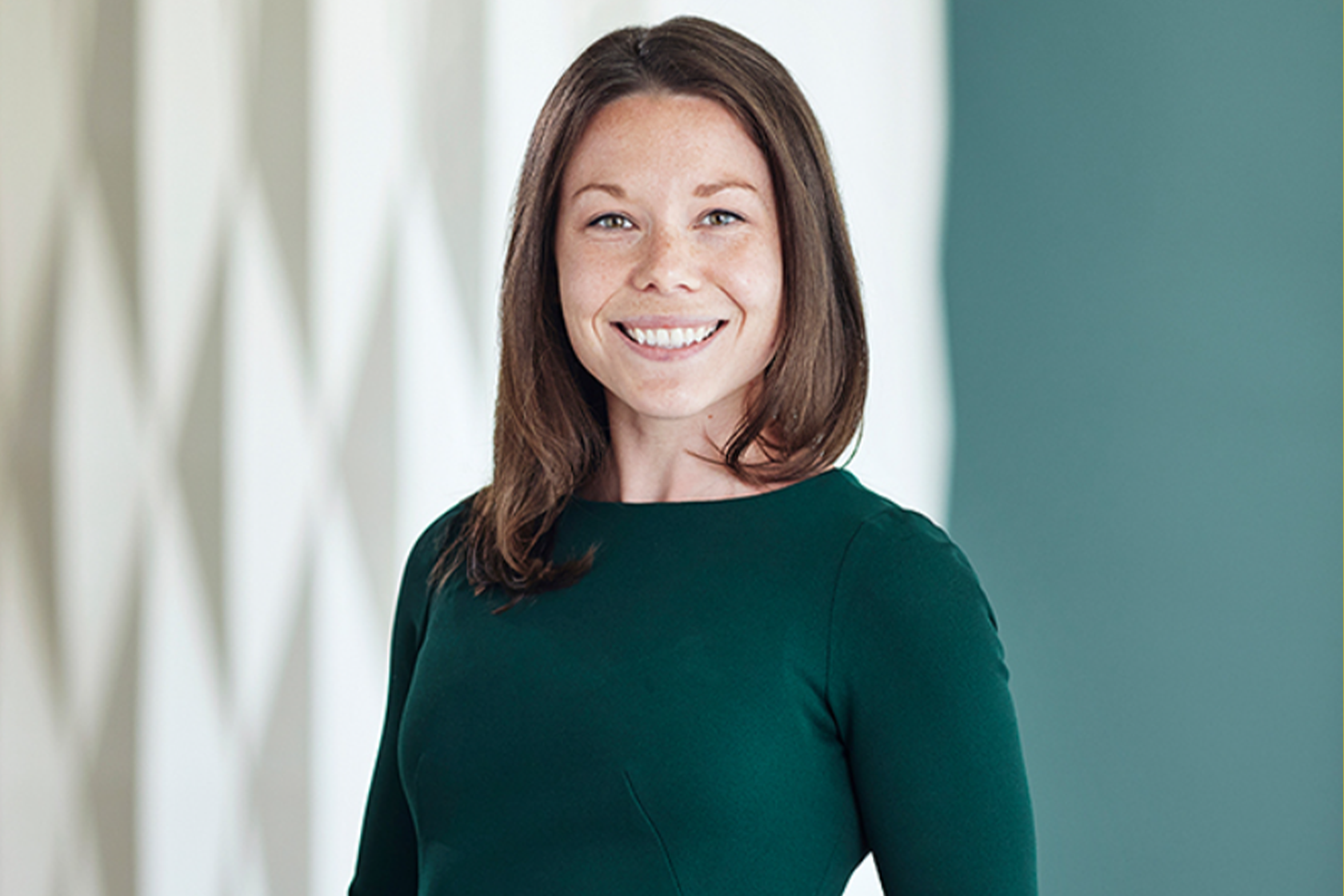Our alumni spotlight shines on accomplished alumna, Lauren Fields ‘19, whose professional trajectory in the world of business law commands attention. As a 2019 Maryland Carey Law cum laude graduate, and William P. Cunningham Award of Excellence recipient, Lauren is currently an associate within the Corporate Practice Group at Venable. Lauren specializes in intricate corporate matters extending to corporate governance and investment fund formation. Reflecting on her time as a student, Lauren fondly recalls the supportive environment that allowed her to explore her interests, engage with top-notch faculty, and develop the skills that would later assist her career.
With nearly five years passing since her graduation from Maryland Carey, and successfully completing the Business Law Track, she took time to share her reflections with us. When asked about her journey from law student to corporate attorney, she recalled, “I entered law school knowing I wanted to work in-house or practice transactional law of some kind based on my professional experiences before law school. With this in mind, I was fortunate to hit the ground running with the Business Law Track when I started at Maryland and did my best to maintain a transactional law-related course load.”
With a career path in mind, she earned an associate position with Venable prior to graduation. However, due to some solid advice, she took a valuable detour before she joined the present firm. She reminisced, “Despite this offer from Venable and my lack of affinity for litigation, Professor Gifford (for whom I was a research assistant at the time) convinced me that being well-rounded is fundamental to career success and urged me to apply for a judicial clerkship. I ultimately deferred joining Venable for one year to clerk for former Chief Judge Mary Ellen Barbera of the Maryland Supreme Court (formerly known as the Maryland Court of Appeals). I was skeptical about the value a clerkship would have for me in the long term but now I can emphatically state that it was one of the best career decisions I could have made (and I attribute this wise decision to Professor Gifford).”
With a clerkship for the 2019-2020 term, no one could foresee the professional and life lessons that would come through that unique experience: “I was clerking for Chief Judge Barbera during the 2019-2020 term, which is when COVID-19 hit. The chief judge of the Maryland Supreme Court is more than a judge overseeing a bench—this judge is also the head of a branch of state government. It is hard to capture in words the experience of working in Chief Judge Barbera’s chambers during the onset of COVID-19. Her ability to continue to oversee the bench while simultaneously leading the adaption of the judiciary to the needs of the citizens of Maryland in the face of both great uncertainty and rapid developments related to the pandemic was nothing short of extraordinary. Among many other lessons, being a clerk during this time gave me insight into navigating pressure and unexpected situations (experiences that are attendant to being a lawyer in any area of practice).”
With that, Lauren has embarked on a successful career in Business Law. She credits her time as a summer associate with Venable contributing to the seamless transition from law student to attorney; however, Professor Don Gifford spotted the talent while Lauren attended Maryland Carey. “The only thing holding Lauren back at that point in her professional career was that she had no idea how extraordinarily capable she was and what she could accomplish in the practice of law. Professor Raskin and I tag-teamed to make Lauren understand her potential,” Professor Don Gifford noted.
Prepared to respond to a client’s need at any time of day, she has embraced her role as a legal advisor with enthusiasm. Reciting Maryland’s Corporations and Associations Article has become second nature to her. Although her work involves some quasi-litigation, her choice to pursue transactional work has provided an enjoyable career thus far.
Amidst her reflections on how the comprehensive education and practical experiences from the law school prepared her for the complexities of the real world, she offers this advice to current students: “Go outside of your comfort zone! Take classes and intern even if you do not (yet) believe they will be relevant to your future practice. For example, Maryland Consumer Protection ended up being one of the most practical classes I took while at Maryland. Secured Transactions, Administrative Law, Trusts and Estates, Tax—I do not practice in any of these areas, but I took these classes, and they have each proven to be worth the time and effort because corporate law is very broad and, in my practice at least, seldom routine. I interned for the bankruptcy court and the Maryland Office of Administrative Hearings—again, neither are these areas in which I practice but both of which have informed my work. Having a basic understanding of areas of law tangentially related to your practice allows you to ask questions you would not otherwise know need to be asked.”
Lauren's journey from law school to a prominent position in the business law sector stands as an inspiration for current students. Her story not only celebrates individual achievements but also underscores the excellence of a Maryland Carey legal education. As we applaud Lauren's accomplishments, we recognize the transformative power of education and the lasting impact that alumni like her continue to have on the legal profession.

